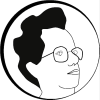
Job seeking by deaf and hard-of-hearing peopleIntroductionSeveral deaf and hard-of-hearing people face the following dilemma when looking for a job:
The answers differ from case to case. Some of the variables are:
Should I mention my deafness in my resume or not?Note: the following may not be relevant for USA with its ADA law. Reasons in favor of mentioning your deafness in your resume:
Reasons against mentioning your deafness in your resume:
How can a prospective employer contact me if I use TTY/TDD?I'd like to comment on how people have dealt with leaving TDD numbers for employers during their job hunting. In my opinion, it's important for the job seeker to be upfront about their handicap. The best way is to EDUCATE the company in the cover letter about the different ways they can communicate with you. This is how I have done it in my cover letters - usually as the last paragraph in the cover letter.
"If you have any questions regarding my application, please do not
hestiate to contact me at (716) 475-0019. Since I use a TDD (I don't
usually spell it out, but that's something you could do), you will
need to call the NY Relay system first at 1-800-662-1220. They will,
in turn, contact me with their TDD. I trust that you will find this
system fairly easy to use. An alternative means of contacting me
would be by sending me an e-mail at ....."
In addition, I provide the NY Relay number beneath my phone number on my resume. If this turns off employers, then that employer may not be worth working for in the first place. But then again, I was fortunate to find a job after 4 months, and may not have experienced as much discrimination as others might have. Just my two cents. (Contributed by Jamie at 4 Dec 1994.) Bibliography on job seeking by hearing impaired peopleAn excellent book on job seeking is, "Job-Hunting Tips for The So-Called Handicapped" by Richard Nelson Bolles (author of What Color is Your Parachute?). It is highly reccommended reading! It's 61 pages and $4.95. Makes many points, ie. everyone redesigns or modifies their jobs to highlight their abilities and get around their limitations. Discusses what fears an employer might have and ways to dispel them. (Contributed by [email protected] at 12 Aug 1994.) To find other deafness related bibliographies, browse http://www.zak.co.il/deaf-info/old/books.html. Last update date: 1996 Jan 2 |
DonationDid this Web site help you? If yes, you may want to consider making a donation to me. When making a donation, please tell me what additional information could I add to the Web site, to make it even more helpful for you and people like you. |